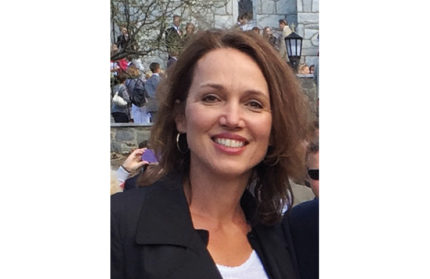Health in Your 40s
 In our 40s women are often trying to balance their job, children and aging parents. We find we’re taking care of everyone else and, too often, neglecting our own health. Please take this medical advice: Putting ourselves last actually jeopardizes everyone’s wellbeing. It’s the oxygen-mask rule.*
In our 40s women are often trying to balance their job, children and aging parents. We find we’re taking care of everyone else and, too often, neglecting our own health. Please take this medical advice: Putting ourselves last actually jeopardizes everyone’s wellbeing. It’s the oxygen-mask rule.*
During this decade, women’s bodies begin to experience changes both big and small—you may start menopause or find you need your first pair of reading glasses. The 40s are a time of transition in many respects, and a time when a little time invested in your health can yield significant and long-lasting benefits.
To help better prepare yourself for a healthy future, here are four simple steps you can take to stay healthy in your 40s … and beyond.
1. Continue the healthy habits you formed in your 20s. Or make your 40s a time for these habits to stick.
Maintaining a healthy weight and diet are still critical. But a healthy weight may be more difficult now because of changes in your metabolism. Because increased weight leads to heart disease, hypertension and diabetes, it’s well worth the effort of continuing and improving your healthy diet.
Exercise continues to be essential to good health. A 40-something’s workout should include weight-bearing exercise—walking, dancing, lifting weights, even golf and types of yoga—to help build bone strength, maintain muscle mass and prevent osteoporosis, new concerns as you age.
Advice against smoking and for moderation in drinking still stands.
The same for using sunscreen. Now include regular skin checks for skin cancer after all those years as a sun worshiper.
A new habit to consider: Eat more calcium-rich food and ask your doctor to check your vitamin D levels. Both may help in maintaining bone strength.
2. Schedule annual appointments with your primary care physician for a gynecological checkup and a physical. Once a year is a minimal investment in good health.
Your 40s are a time to keep current on health screenings and to have baseline tests done so you can catch any potential health issues early.
In addition to your routine gyn checkup, discuss with your doctor the recommended frequency for cervical cancer screening (Pap and HPV tests) and mammograms—both vary based on your health history.
You may also want to discuss your birth control options. Switching from oral contraceptives to another method may be advisable. Long-term use of birth control pills may increase cardiovascular risks.
Talk with your doctor about symptoms of menopause, too. Although the average age for menopause is 51, some women experience symptoms years before that. Symptoms like hot flashes and night sweats may be managed with short-term hormone therapy for those at low risk for breast cancer and heart disease.
As part of your annual physical, ask about screening for conditions that emerge during the 40s, like diabetes, high cholesterol and high blood pressure. And if you have a family history of certain diseases—like colon cancer—you and your doctor may want to do additional screenings.
Finally, this checkup is also time to make sure your immunizations are up to date. Even healthy women need a tetanus shot every ten years and an annual flu shot. Special health conditions may require other shots. Again, check with your doctor.
3. Visit the eye doctor and dentist.
You may have noticed changes in your vision as you hit your 40s. And even if you don’t, get your eyes checked. You may be among the many who need reading glasses or bifocals.
And don’t forget the importance of regular, six-month dental exams. Gum disease may be linked to higher instances of heart disease.
4. Monitor your mental health. It’s as important as your physical health.
Make time for yourself by maintaining healthy social connections. Spending time with good friends and a girls’ night out are actually good for you! And get some me-time—whether it’s scheduling exercise or a soothing massage.
Since the busy 40s can be stressful, find stress reduction techniques that work for you. This can be as simple as practicing deep breathing or mindfulness or doing yoga—which also improve your mood and make your feel energized. Breathing exercises take little time, require no equipment, can be done anywhere, and the 4-7-8 breathing technique even helps with falling to sleep (just Google it or watch on YouTube).
If you’re experiencing depression or anxiety—also common for women in their 40s—make an appointment with your doctor to discuss options. Don’t suffer alone and without help.
These steps will help you have a healthier future. So make time to take care of yourself and everyone will be reap the benefits.
*Oxygen-mask rule: “If you are traveling with a child or someone who requires assistance, secure your own mask first, and then assist the other person.”
Dr. Boken, a board certified family physician, serves as a volunteer physician at Community Volunteers in Medicine in West Chester. With a background in academia and as co-author of a chapter in Manual of Family Practice and Family Medicine: Principles and Practice, her areas of special interest include preventative medicine and women’s health. 610-836-5990; CVIM.org.
